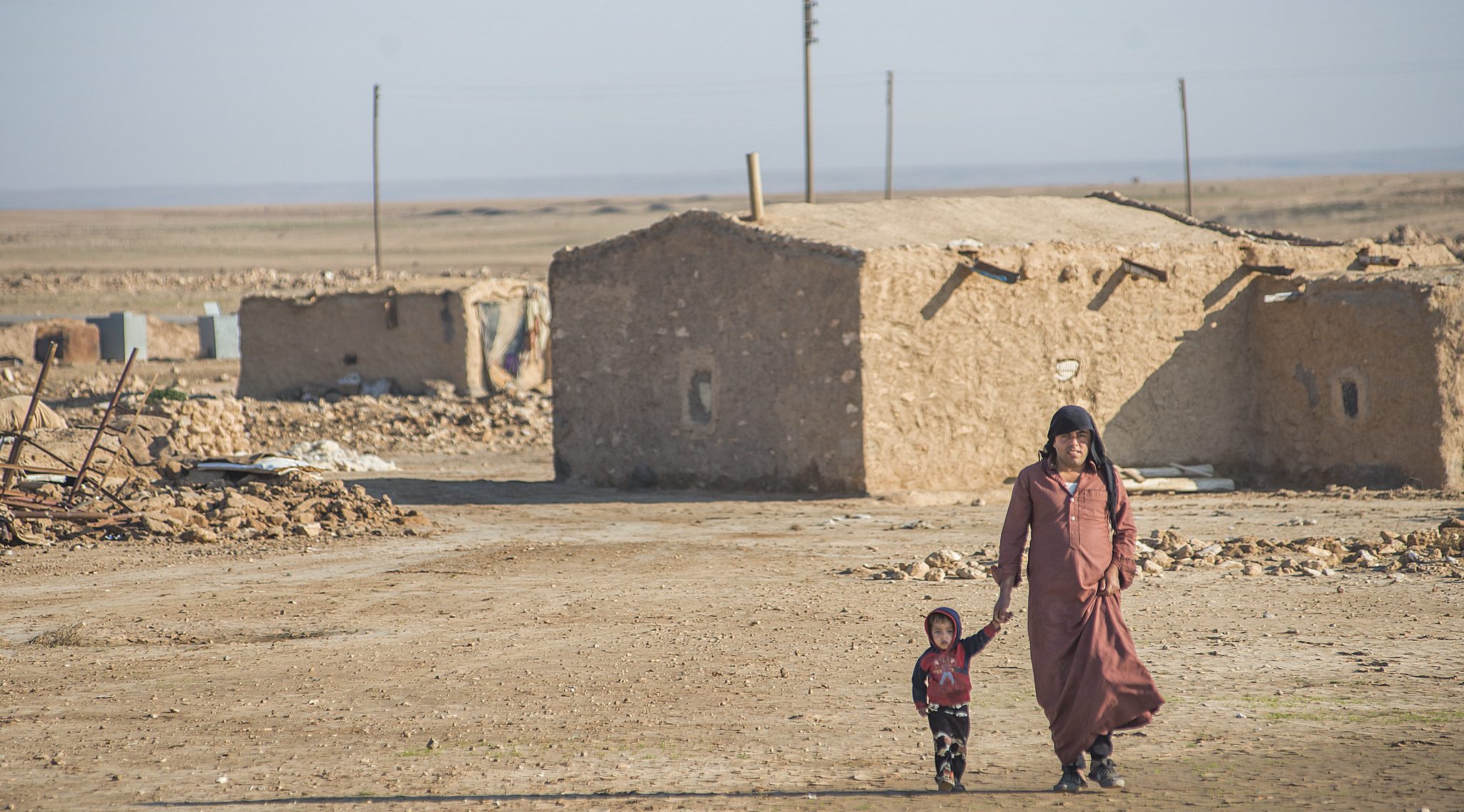
©2018 European Union (photographer: Peter Biro)
The reality of mental health and psychological support in northwest Syria
15 February 2022
Northwest Syria (NWS) is a conflict area with challenging political, economic, demographic and social dynamics. The region has many internally displaced people with increasingly disrupted basic services including healthcare. Mental ill-health has been increasing in the region, while the infrastructure and capacity of the health sector have been depleted. Lynda Keeru reports back on a research project that was carried out to explore the provision of mental health and psychological support services (MHPSS) to communities and healthcare workers in NWS and assess beneficiaries’ experiences with MHPSS services including care, accessibility and quality.
Northwest Syria Mental Health and Psychological Support Thematic Working Group hosted a webinar, ‘Presenting Findings of an Assessment of MHPSS Service Delivery with a Focus on Frontline Workers and Access for and Relevance to Health Care Workers Affected by Attacks on Health Care in Northwest Syria’ to present the key findings of the research study.
Aggressive military attacks in the area have damaged the civilian infrastructure, with the specific targeting of healthcare facilities and workers. This has exacerbated the humanitarian crisis. Before the formation of a MHPSS Thematic Working Group, the MHPSS service provision was neglected, unorganized and very limited. The focus was mostly on physical health services and there were limited services available and only at the border with Turkey where active organizations were operating. There was a challenge of insufficient resources, such as medicines and human resources and especially mental health providers.
Multiple needs assessments were conducted by WHO and partners at facility level to identify MHPSS needs in NWS and the increased relevance of MHPSS services. TWG members, NGO representatives and health providers identified that capacity building of human resources to mitigate the shortage in specialized MHPSS workforce was the main element of the MHPSS response. There was service mapping which was helpful in identifying facilities in the region providing MHPSS services for the purpose of improving referrals. Unfortunately, only MHPSS service providers knew about this referral process. Additional elements of the response included online service provision during the COVID-19 pandemic, development of awareness material and the organization of awareness activities engaging community leaders and the media.
What was apparent is that the current coverage of services and available resources, particularly human resources, is still insufficient and cannot meet all of the needs of communities. The existing MHPSS services are not comprehensive and do not address the psychological requirements and basic needs of the communities. Direct interventions for targeting health care workers are limited and are not proportional to the increasing stressors in their professional lives. To a large extent, MHPSS services have been equally provided to all beneficiaries regardless of their gender, socio-economic status and residency status. However, women and children have access challenges due to community-related factors and a lack of specialized MHPSS services for children.
Integration of MHPSS services into primary health care settings would help communities to overcome stigma-related barriers and could increase MHPSS service uptake. Poor health facility infrastructure, limited human resources, lack of financial incentives, and financial and governance issues are some of the factors negatively affecting MHPSS service integration. To reverse this, community engagement was identified as a key factor for service delivery, particularly by employing community health workers to access communities and create acceptance of MHPSS services. Monitoring and evaluation is crucial for checking the adequacy of services and identifying gaps in service delivery.
Access to mental health and psychological support services
Participants of the study reported a general improvement in accessing MHPSS services. However they had to deal with barriers such as the stigma associated with mental health issues, having to travel long distances to reach facilities, lack of assistance for people living with disabilities and prejudice against mental health services. Gender-related differences in access to care were found in some places, with the ability of women and men to seek services being dependent on the cultural norms and beliefs of each region.
The quality of care seemed to have improved for most participants with most reporting improved health and competent providers that adapt treatment strategies according to individual experiences. They also felt that the services were sensitive to their cultural norms, social attitudes and religious beliefs. Most respondents noted and reported an improvement in their mental health with 92% of the respondents satisfied with the services.
Recommendations
There is a need to address the intermittent funding of the MHPSS response. An improved coordination between health partners and non-health actors is salient in order to expand the scope of the MHPSS response. Most importantly, the inequitable availability of human resources and a lack of medicine must be addressed and MHPSS outputs and outcomes incorporated in routine services.
Presenter: Dr. Ibrahim Bou Orm
Image: ©2018 European Union (photographer: Peter Biro) via Flickr [opens new tab]